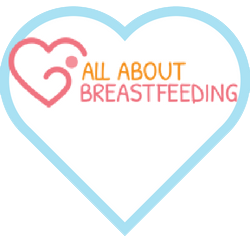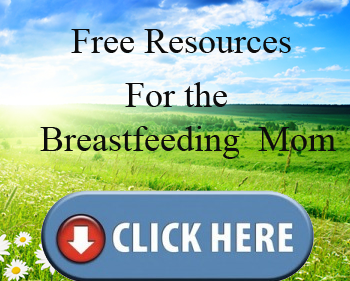Most mothers whose hormones are in the proper balance and who have normal breast development during puberty and pregnancy, will make plenty of milk for their baby. Despite all their best efforts, there will be some mothers who will struggle with supply. I find that most mothers I work with, who struggle with supply, well they actually have one or more potential risk factors for low supply, however, they were just not made aware of it. There are some very real factors that can put you at risk for not making enough milk and some you can know ahead of time and others take you by surprise.
If your care provider or lactation consultant notices a potential risk factor ahead of time, should they discuss it with you? Or not?
There are different schools of thought. Some educators feel that we should not discuss potential risk factors for low supply. They feel that we are planting seeds, telling you what might occur. Some people feel that If we don’t know for sure, is this something we really want to be doing? You might begin to think it is over before you began. You might worry needlessly and this can truly affect your emotions and your supply.
Perhaps what we observe will never turn into anything. We honestly never do know what the body will do! Meaning, I have seen some mothers make more milk then I ever thought would be possible for them. What would have happened if I had highlighted certain risk factors during their pregnancy? Would telling them create a psychological barrier and what turned out to be no problem, may have been a big problem? I know for me, that while I take every individual situation on its own merit, I tend to lean toward having this discussion with the mother. I do feel strongly that information is empowering and we are better off knowing of a real potential problem, than not knowing. In a few minutes, I will explain myself even further.
For right now, let’s go over some of the most common reasons for low milk supply that we may see before you give birth. I do want to say here that you should not consider this a complete list, but rather a listing of some of the common reasons mothers tend to have a low supply.
1. breast surgery – Definitely an area to be looked further into. This can depend on how many surgeries, where the incision/s are located, the surgical techniques used, how long ago was the surgery? did you have any complications after the surgery.
Incisions that are made around the areola tend to affect breastfeeding the most. We can have our suspicions, however, experience tells me that you never know until you try. This, to me, still does not mean not discussing it with the mother.
2. Health issues related to hormonal imbalance: auto immune disease such as thyroid imbalance,
insulin resistance,
3. Delay in milk volume – insulin resistance, obesity, birth trauma – all these increase risk factor for early supplementation, which can cause low milk supply.
4. Insufficient glandular tissue – You may hear this condition called by another name, Hypoplasia. This is when we see breast shape, placement and size that is different than what we would expect to see. It is not that the breast is small or large, but that are widely spaced from each other, very noticeable different size than each other and sometimes tubular in shape.
History taking is very important because some of the breast surgeries are so good that it is hard to tell their has been breast surgery.
Even if we can tell that there have been incisions made, we need to know for what reason. A normally shaped and placed breast that was just not the desired size is one reason for having surgery. Ones that had all the markers of IGT are now disguised because the breast surgery has been so successful. The appearance though does not change the facts. A mom who has IGT may have never been told that she is at risk for having a low supply.
I always ask moms if they have had any kind of breast surgery. When moms say yes, I will then ask them what their reasons for the surgery was. I am trying to find out if their breasts were underdeveloped or tubular in shape or widely spaced or markedly different size from each other? Or did they have breast surgery because their breasts were normally shaped and developed, but just larger than they wanted so they had reduction surgery or smaller than they wanted so they had implants. If I find out mom had surgery for insufficient glandular tissue, I can take this conversation further. I need to explain to mom how and why this might impact her overall supply. Breast reduction surgery may have cut into so much breast tissue that it affects the milk production so we need to have this conversation also with a mom who has had breast reduction surgery.
5. Infertility issues: Frequently moms who have had infertility issues related to their hormonal imbalances can be the cause of lactation challenges. So, we need to discuss this in more detail. They used hormonal treatments to conceive a baby and keep the pregnancy, but now they may lack the hormones in proper balance to establish a supply that meets their babies needs.
Some common reasons why you might struggle with building or maintaining a supply that meets your babies needs.. after the birth:
1. Hormonal imbalance related to several health issues:
a. retained placenta – This is definitely not a common occurrence, however, there are times when not all of the placenta has been removed from the uterus. The result of having a retained placenta means that you have higher levels of certain hormones in your system that will inhibit/prevent milk supply from increasing much.
b. Sheehans syndrome/pituitary shock – This is also not a common occurrence, however, it can have devastating affects on milk production. Sheehans syndrome is caused by severe postpartum hemorrhage. The mothers blood pressure drops so low that blood fails to circulate to the pituitary gland, which causes some of the cells in the gland to stop working. This shock to the pituitary may shut down prolactin which is a very important hormone in the milk making department.
c. Depo Provera – used for birth control and when used before the 8th week postpartum, can drop a supply.
2. hormonal contraception – birth control pills and IUDs can make milk production hard for some moms. You may have had a full supply but start to see it gradually or quickly drop shortly after beginning contraception. I think all mothers taking HBC should be made aware of this so they can make an informed decision about birth control.
There are other reasons why you may struggle to establish a supply that meets your babies needs or maintain a supply that meets your babies needs. These are all likely due to breastfeeding mismanagement.
Common causes are:
Infrequent feedings, inefficient feedings, scheduling babies time to feed, scheduling babies time spent at the breast, only offering one side per feeding particularly in the very early days of breastfeeding.
I believe that because the milk supply is such an important commodity. Bringing in a good supply and maintaining the established supply are so incredibly important to breastfeeding, that we should do all we possibly can to have the knowledge on how we can identify mothers at risk for low milk supply. The next phase is to have conversations with mothers about their risk factors. I don’t just want to plant a negative seed and have mom be depressed or anxious about it. I want to inform her of what her risk factor is and then I want to empower her with knowledge so she can be a part of the health care team and work together to ensure that her babies needs are met and that she is doing all she can in the early stages of breastfeeding to build her supply.
In a very positive way, moms are told – Just breastfeed your baby every few hours, and you will make enough milk for your baby. When you are a new mom and breastfeeding, you are not quite sure what all this should look like, how your baby should act. It is all new to you. I meet moms on a regular enough basis whose babies have lost too much weight and they are wracked with guilt over not having fed their baby enough.
I hate it that moms feel guilty about something they had no control over. The realization that she mistook what she thought were cries of fussiness or colic or too much gas, were actually cries for more food, can be quite devastating to mothers. I want to prevent this from happening. This is why I feel it is important inform that HCP are adept at identifying risk factors. Let’s all work together to avoid the needless anxiety that poorly fed babies
I do say that when I meet with a mom who has a poorly fed baby and has some clear signs of low milk supply, I do get my panties all up in a twist. I believe she should have been told and this way she could This led them to have poorly fed babies who were dangerously under weight when I met with them. I want to avoid the needless anxiety producing early breastfeeding mismanagement that I sometimes see
You can begin to understand my intense pushiness to get help from an IBCLC early on, if you feel you are at risk or are struggling with supply the first few days.
I will leave you with today’s quote:
Hope is definitely not the same thing as optimism. It is not the conviction that something will turn out well, but the certainty that something makes sense, regardless of how it turns out. Vaclave Have
 Lori Jill Isenstadt, IBCLC is a huge breastfeeding supporter. She has spent much of her adult life working in the maternal health field. Once she became turned on to birth and became a childbirth educator, there was no stopping her love of working with families during their childbearing years. Lori became a Birth doula and a Postpartum doula and soon became a lactation consultant. She has been helping moms and babies with breastfeeding for over 25 years. Lori founded her private practice, All About Breastfeeding where she meets with moms one on one to help solve their breastfeeding challenges. She is an international speaker, book author and the host of the popular itunes podcast, All About Breastfeeding, the place where the girls hang out. You can reach Lori by email at: aabreastfeeding@hotmail.com or contact her via her website: allaboutbreastfeeding.biz/contact
Lori Jill Isenstadt, IBCLC is a huge breastfeeding supporter. She has spent much of her adult life working in the maternal health field. Once she became turned on to birth and became a childbirth educator, there was no stopping her love of working with families during their childbearing years. Lori became a Birth doula and a Postpartum doula and soon became a lactation consultant. She has been helping moms and babies with breastfeeding for over 25 years. Lori founded her private practice, All About Breastfeeding where she meets with moms one on one to help solve their breastfeeding challenges. She is an international speaker, book author and the host of the popular itunes podcast, All About Breastfeeding, the place where the girls hang out. You can reach Lori by email at: aabreastfeeding@hotmail.com or contact her via her website: allaboutbreastfeeding.biz/contact 
Listen Here
Submit a comment
your email address will not be published









